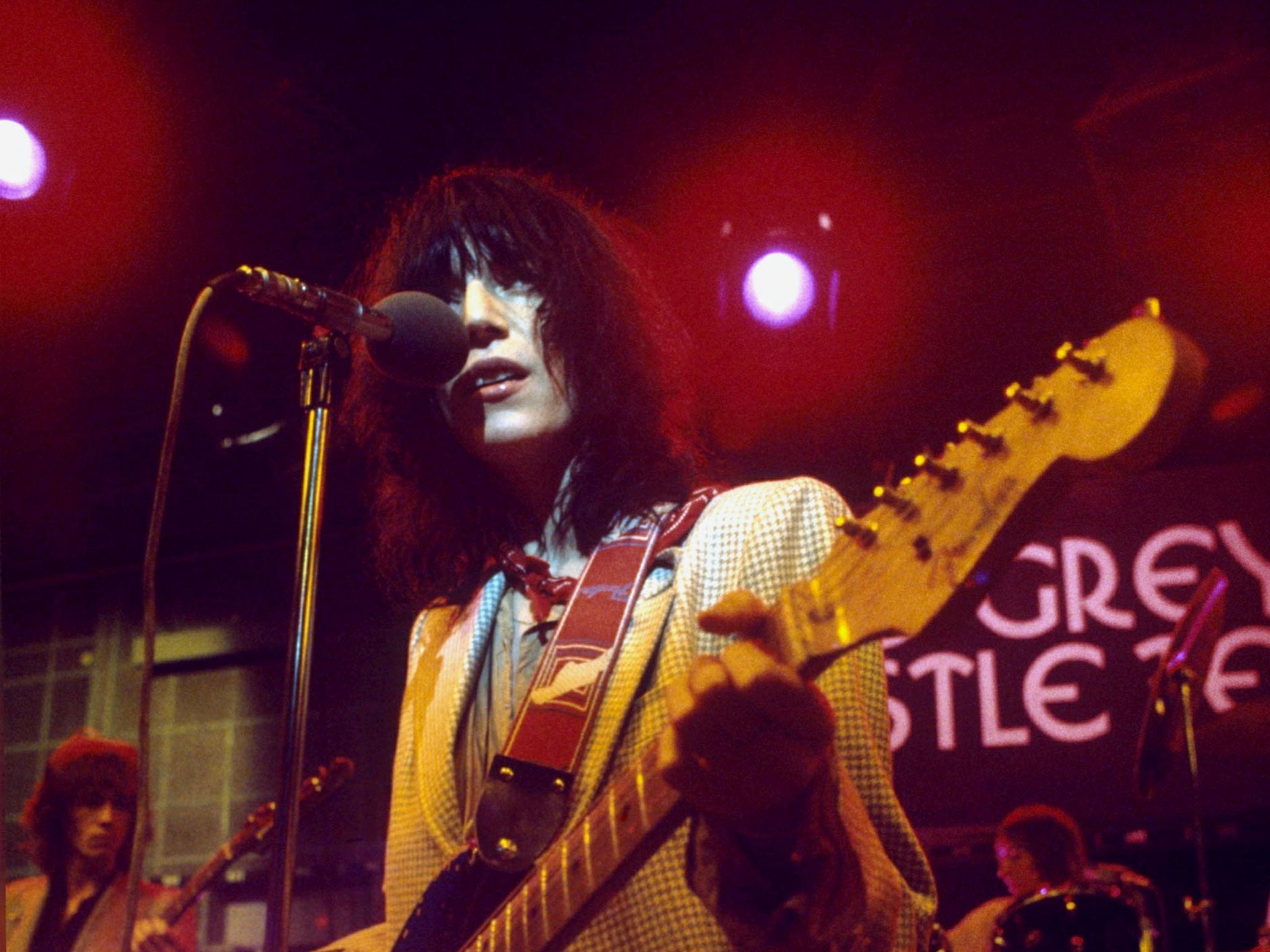M Train by Patti Smith, book review: A vivid portrait of a visionary
Patti Smith's reflections reveal an inner life as rich and full as the outer

Your support helps us to tell the story
From reproductive rights to climate change to Big Tech, The Independent is on the ground when the story is developing. Whether it's investigating the financials of Elon Musk's pro-Trump PAC or producing our latest documentary, 'The A Word', which shines a light on the American women fighting for reproductive rights, we know how important it is to parse out the facts from the messaging.
At such a critical moment in US history, we need reporters on the ground. Your donation allows us to keep sending journalists to speak to both sides of the story.
The Independent is trusted by Americans across the entire political spectrum. And unlike many other quality news outlets, we choose not to lock Americans out of our reporting and analysis with paywalls. We believe quality journalism should be available to everyone, paid for by those who can afford it.
Your support makes all the difference.At one point in M Train, Patti Smith recounts a row she has in her local cafe with a woman who's about to settle herself at Smith's favourite table, the one she always sits at. “Did you reserve it?” the woman asks her, rhetorically.
This isn't a book that depends on sensational revelations for its heft, but one follows: “I stood there mute,” writes Smith. “If this were an episode of Midsomer Murders she would surely be found strangled in a wild ravine behind an abandoned vicarage.” Patti Smith? Midsomer Murders? Patti Smith, writer of such hard-bitten songs as “Piss Factory”? Has the world gone bonkers?
It turns out that Smith is a massive fan of crime shows – not just the American ones like CSI and all its variants, but the Brit ones, too. She records a detour to London on the way back to the US from Berlin to hole up in a Covent Garden hotel and spend the evening watching ITV3 – Lewis, Morse, Wycliffe, Whitechapel et al.
She's also a devoted fan of The Killing, the Danish original and the US remake – whose heroine, Sarah Linden, she adores. “Even as a character in a television series, she is dearer to me than most people.”
This may seem a trivial way into discussing Smith's follow-up to Just Kids, her award-winning account of her friendship with Robert Mapplethorpe during the 1970s, when she was taking her first steps to stardom. But the emotion she invests in a fictional detective is of a piece with how she lives her life. Just as Linden means something profound to her, for Smith, objects, memories and dreams are charged with waves of meaning. Her interior life is at least as real to her as the exterior version.
At one point she conducts a conversation she finds helpful with the bust of the electricity pioneer Nikola Tesla outside the Serbian Orthodox Church near Broadway, and she recalls a journey she made with her husband Fred “Sonic” Smith (the ex-MC5 guitarist, who died in 1994) to take a few pebbles from the site of a prison in a former French penal colony in present-day Suriname.
Jean Genet wanted to be incarcerated there but was denied when it was closed down. Smith eventually makes it to Genet's grave in Morocco, where she buries the sacred stones.
There's also fascinating material about her dealings with the arcane and esoteric Continental Drift Club. It leads to the book's wildest story, of how a lecture she delivers to the Club in Reykjavik leads to her presiding over an Icelandic junior chess tournament, which leads to a meeting with Bobby Fischer in a closed-off hotel dining room in the middle of the night, singing Buddy Holly songs.
There may be no overarching theme to what is basically a diary of stuff she's done lately – she admits “It's not so easy writing about nothing.” But it's a vivid portrait of the inner and outer lives of an artistic visionary. “I offer my life on a platter filled with allusions,” she writes. Fellow musicians don't get much of a mention, but there are some great stories about other journeys she undertakes in pursuit of her deceased heroes, and her meetings with live ones: Frida Kahlo, Ludwig Wittgenstein, William Burroughs, Paul Bowles and WG Sebald.
Among her sacred objects are the many Polaroids she takes in the course of M Train, some of which are included – in homage, perhaps, to Sebald.
“Oh, to be reborn in the pages of a book,” she cries at one point, and Smith comes intensely and wonderfully alive in this one.
Join our commenting forum
Join thought-provoking conversations, follow other Independent readers and see their replies
Comments